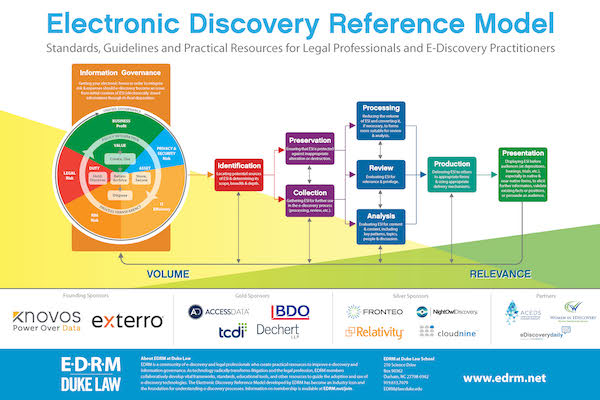Blockchain: the future of eDiscovery?
I have been in the litigation support space for my entire career. I have been fortunate enough to be at the cutting and bleeding edges of innovation and technology for much of that time.
I've ridden the legal tech wave since email was new and we switched from typewriters and carbon paper for correspondence. I've been immersed in supporting lawyers and clients in navigating changes in legal research (text to CD-ROM to online). As our industry has become more sophisticated, I have seen us wrestle with meta data, deduplication, predictive coding and TAR, audio and social media discovery, and the challenges of mobile collection. There's been Bloomberg parcing projects and struggles with structured data. We've learned about deNisting and what a MIME type was.
Let's not forget (how could we?) the more recent issues with privacy rules in the US and the EU. Just when we had a handle on things, we fine-tuned our focus and started talking about GDPR. We had hacks and data breaches.
It's been a wild ride, hasn't it? I think we all deserve to take a deep breath before we dive in to the deep end again. 'Cause here it comes.
Blockchain.
Yup, I said it. And, no, it's not just about Bitcoin.
I've ridden the legal tech wave since email was new and we switched from typewriters and carbon paper for correspondence. I've been immersed in supporting lawyers and clients in navigating changes in legal research (text to CD-ROM to online). As our industry has become more sophisticated, I have seen us wrestle with meta data, deduplication, predictive coding and TAR, audio and social media discovery, and the challenges of mobile collection. There's been Bloomberg parcing projects and struggles with structured data. We've learned about deNisting and what a MIME type was.
Let's not forget (how could we?) the more recent issues with privacy rules in the US and the EU. Just when we had a handle on things, we fine-tuned our focus and started talking about GDPR. We had hacks and data breaches.
It's been a wild ride, hasn't it? I think we all deserve to take a deep breath before we dive in to the deep end again. 'Cause here it comes.
Blockchain.
Yup, I said it. And, no, it's not just about Bitcoin.
I definitely think this is something, as eDiscovery professionals, for us to keep our eyes on. Ever since I first heard about Bitcoin I wondered if this might be our next arena. It
will be interesting to see what technologies arise to help with collecting and
analyzing blockchain data.
We've finally gotten attorneys to understand 'traditional' data collection and information governance. Anyone that's ever interviewed with me knows I ask about data mapping. Now what we do?
For those not clear on blockchain, here's my uninformed explanation. Blockchain is an immutable record of digital transactions. Each entry is a link in a chain; each block is protected by cryptography. This means that only the intended recipient or audience can read and process it.
So it's secure and private. Great.
What's also interesting about blockchain is that it has a level of transparency. The transactions are immediately public. Wait. What?
The fact that privacy is in place while
the data packets and transactions are public and transparent is very intriguing. While some companies are using blockchain to track shipments, others are starting to use the technology for information governance.
We're not seeing a lot in our world yet. But...
Blockchain is coming.


Comments
Post a Comment